
Founder and Executive Director
Bia Labate – Co-Founder and Executive Director
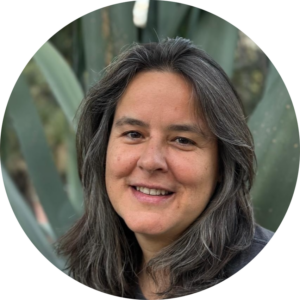
Board Directors
Clancy Cavnar – Co-Founder and Secretary
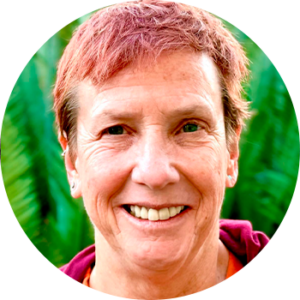 Clancy Cavnar has a doctorate in clinical psychology (Psy.D.) from John F. Kennedy University in Pleasant Hill, CA. She currently works in private practice in San Francisco, and is Co-Founder and a member of the Board of Directors of the Chacruna Institute for Psychedelic Plant Medicines. She is also a research associate of the Interdisciplinary Group for Psychoactive Studies (NEIP). She combines an eclectic array of interests and activities as clinical psychologist, artist, and researcher. She has a master of fine arts in painting from the San Francisco Art Institute, a master’s in counseling from San Francisco State University, and she completed the Certificate in Psychedelic-Assisted Therapy program at the California Institute of Integral Studies (CIIS). She is author and co-author of articles in several peer-reviewed journals and co-editor, with Beatriz Caiuby Labate, of eleven books. For more information see: http://www.drclancycavnar.com.
Clancy Cavnar has a doctorate in clinical psychology (Psy.D.) from John F. Kennedy University in Pleasant Hill, CA. She currently works in private practice in San Francisco, and is Co-Founder and a member of the Board of Directors of the Chacruna Institute for Psychedelic Plant Medicines. She is also a research associate of the Interdisciplinary Group for Psychoactive Studies (NEIP). She combines an eclectic array of interests and activities as clinical psychologist, artist, and researcher. She has a master of fine arts in painting from the San Francisco Art Institute, a master’s in counseling from San Francisco State University, and she completed the Certificate in Psychedelic-Assisted Therapy program at the California Institute of Integral Studies (CIIS). She is author and co-author of articles in several peer-reviewed journals and co-editor, with Beatriz Caiuby Labate, of eleven books. For more information see: http://www.drclancycavnar.com.
Jamie Beachy – Chair of the Board of Directors
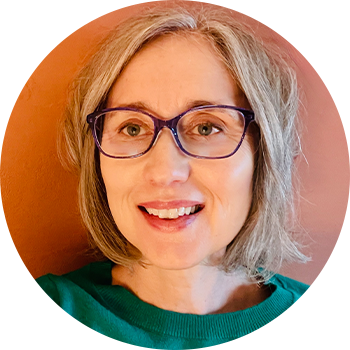
Jamie Beachy PhD, MDiv, is a professional chaplain, spiritual care educator, and ethics consultant with experience in palliative care, hospice, and trauma care. Jamie was a sub-investigator for MAPS Phase 3 clinical trials researching the safety and efficacy of MDMA-Assisted Therapy for the treatment of PTSD and currently serves as an MDMA-AT Training Consultant Jamie developed degree program offerings and curricula related to psychedelic therapies as Director of Education and Co-founder of Naropa University’s Center for Psychedelic Studies. She is currently Field Scholar with Emory’ University’s Center for Psychedelics and Spirituality. Jamie sits on the Board of Directors of the Chacruna Institute for Psychedelic Plant Medicines. She lives in the mountains above Boulder with her husband Wael Garas, an integrative physician.
Sean Carr – Treasurer
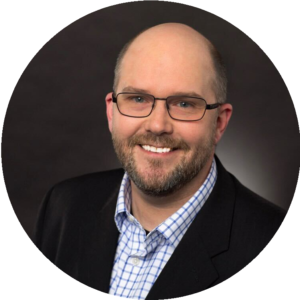 Sean Carr is a business and technology leader who currently lives and works in the San Francisco Bay Area. He has spent his career consulting for large enterprise companies across multiple industries, including technology, healthcare life sciences, and hospitality, to drive complex organizational transformations that align people with the processes and technology needed for success. Sean is also a lifelong student of both science and spirituality. He has a passion for the ceremonial use of sacred plants, and is committed to promoting equitable access to psychedelic medicines and reciprocity for the Indigenous communities that have held this knowledge for thousands of years. Sean is a member of Chacruna’s Board of Directors.
Sean Carr is a business and technology leader who currently lives and works in the San Francisco Bay Area. He has spent his career consulting for large enterprise companies across multiple industries, including technology, healthcare life sciences, and hospitality, to drive complex organizational transformations that align people with the processes and technology needed for success. Sean is also a lifelong student of both science and spirituality. He has a passion for the ceremonial use of sacred plants, and is committed to promoting equitable access to psychedelic medicines and reciprocity for the Indigenous communities that have held this knowledge for thousands of years. Sean is a member of Chacruna’s Board of Directors.
Robert Tod Chubrich – Board Member
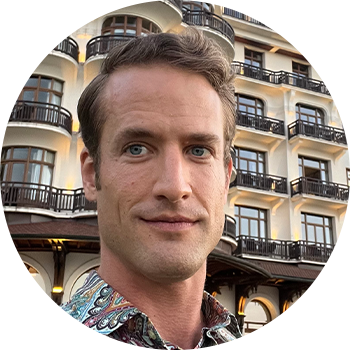
Robert Tod Chubrich is an investor living in Los Angeles and a director of Golden, the world’s leading volunteer management platform. He’s been an enthusiastic advocate for psychedelic medicines since his first experiences with them in 2015 and has supported psychedelic research through the Multidisciplinary Association for Psychedelic Studies as well as the University of California, San Francisco (UCSF) and Columbia, where he was the lead funder for a global survey of ceremonial ayahuasca users. Over the past few years he’s taken a particular interest in Shipibo plant medicine traditions and has completed three master plant dietas in Peru. He’s been inspired by his medicine work to support Indigenous reciprocity efforts through Chacruna, the Indigenous Medicine Conservation Fund (IMC), and the International Center for Ethnobotanical Education, Research, and Service (ICEERS). He’s currently working to develop an interdisciplinary research program on Indigenous medicines to explore medical applications, with an initial focus on ayahuasca and its potential to prevent and/or treat cancer, autoimmune, and neurodegenerative diseases. By awakening Western institutions to the value of Indigenous knowledge, this project will seek to catalyze a profound transformation in the healthcare system and broader economy that will empower Indigenous communities worldwide and pave the way for a regenerative economy centered on healing, human connection, and sustainability. Tod sits on the Board of Directors of the Chacruna Institute for Psychedelic Plant Medicines.
Dr. Sonya Faber – Board Member
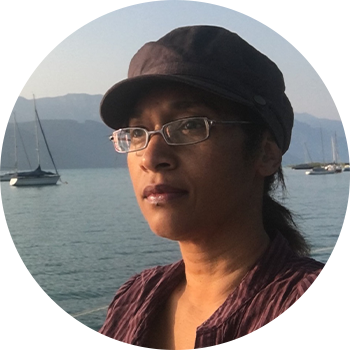
Dr. Sonya Faber graduated with a Masters in Neurobiology from Brown University after completing her undergraduate work at the University of Pennsylvania. She continued her graduate studies at New York University earning a PhD in molecular genetics with a thesis concentration in signal transduction. Over the course of the last 15 years, she has had the opportunity and privilege to contribute equally to both academic research institutes and commercial pharmaceutical development. She has worked in clinical operations for companies including, IQVIA, Covance and Sanofi-Aventis. Her interests lie in creating innovative solutions for projects which could benefit both patients and the scientific community, in part by connecting with top scientists, industry and regulatory agencies.In her academic roles, she assessed novel ideas and supported scientists in making these commercially viable while contributing to several original grants and research papers and patents. Her interest in protocol design, medical writing and project management, which she utilized in both pharma and biotech firms, included pre-clinical and clinical activities for phase II and III trials across multiple indications. She has a special interest in training the next generation of clinical researchers and has designed courses to teach scientific writing and Good Clinical Practice. Dr. Faber is member of the Board Directors of the Chacruna Institute for Psychedelic Plant Medicines. Her engagement on Chacruna is on a volunteer basis and is based on her personal interest in the science of psychedelics, which has long been an interest of hers before taking her current position at Angelini Pharma. In the past two years, she has started an international collaboration with researchers at the University of Ottawa in Canada on several projects in the area of mental health disparities and social justice. She also served on the steering committee for the American Psychedelic Practitioners Association.
Joseph McCowan – Board Member
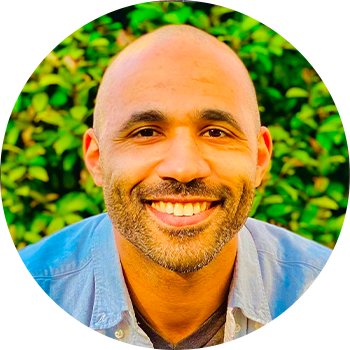
Joseph McCowan, PsyD, is a licensed clinical psychologist and researcher, currently working in Los Angeles. He received his undergraduate degree in psychology from the University of California, Santa Barbara, and his doctorate in clinical psychology from the Chicago School of Professional Psychology. Since 2019, Joseph worked as a Co-therapist and Supervisor in the MAPS sponsored Phase 3 clinical trials of MDMA-Assisted Therapy for PTSD and supports MAPS Therapy Training and Education as a Lead Educator and Supervisor. Additionally, Dr. McCowan supported efforts toward increasing the diversity of therapists and participants in the MAPS clinical studies as part of the MAPS Diversity Working Group. Dr. McCowan also currently conducts research as a therapist in the Compass Phase III Studies of Psilocybin-Assisted Therapy for Treatment Resistant Depression and provides Psychedelic assisted therapy education as a lead trainer with Fluence. Joseph’s prior work includes providing Ketamine Assisted Therapy and Psychedelic Integration Therapy at the California Center for Psychedelic Therapy. Joseph is deeply passionate about furthering education and awareness of the healing benefits of psychedelics for communities of color and in working to improve mental health outcomes for historically underserved communities. He is a member of Chacruna’s Board of Directors.
Stephanie Michael Stewart – Board Member
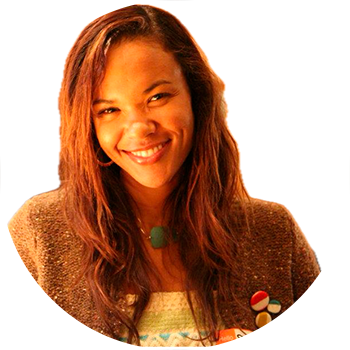
Dr. Stephanie Michael Stewart is a holistic psychiatrist who brings a spiritual, environmental, and social justice perspective to her work. After serving as Chief Resident of Psychiatry at Cedars-Sinai Medical Center, Dr. Stewart led LA County’s West Central Wellness Center where she developed innovative programs for communities of color that integrated evidence-based psychiatric treatments with complementary therapies. She then founded Worldwide Wellness, where she expanded her approach to incorporate travel, immersion in nature, Indigenous wisdom and, more recently, ketamine-assisted therapy. Dr. Stewart is currently developing a psychedelic-assisted therapy training program for psychiatric residents at historically black colleges and universities. Dr. Stewart holds a BS in Biology from Spelman College and an MD from Morehouse School of Medicine. She is member of Chacruna’s Board of Directors. She is of Black, White, and Native American descent.
Outside General Counsel
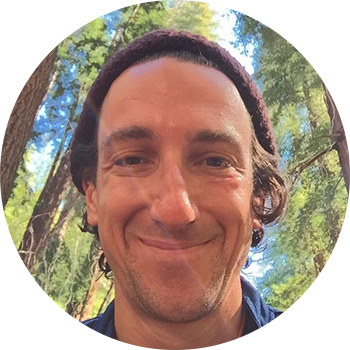
Graham Pechenik is a registered patent attorney, and the founder of Calyx Law. He has a BS from UC San Diego, where he chose his Cognitive Neuroscience and Biochemistry majors after his first psychedelic experiences inspired deep curiosity about the bases for changes in consciousness, and a JD from NYU, where he initially pursued interests in bioethics and cognitive liberty. After a decade at large law firms representing companies in the agricultural, chemical, pharmaceutical, biotech, and technology industries, including litigating patents at trial and on appeal, Graham started Calyx Law to work with cannabis and psychedelics ventures. Graham is also editor-at-large of Psilocybin Alpha, where he writes about psychedelics intellectual property (IP), provides data for patent trackers, and maintains a psychedelics legalization and decriminalization tracker together with UC Berkeley Center for the Science of Psychedelics (BCSP), the founding steward of the IP Committee for the Psychedelic Bar Association, where he also serves on the Board of Directors, and was a member of Chacruna’s Council for the Protection of Sacred Plants from 2021-2025. Graham currently serves as Outside General Counsel for Chacruna. He was raised in Oakland, CA, and currently lives in San Francisco.
Staff
IRI Program Coordinator
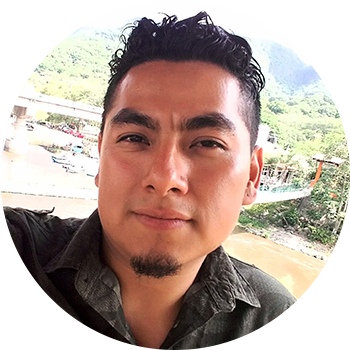
Dr. Osiris García Cerqueda is an Indigenous Mazatec historian and sociologist from Huautla de Jiménez, Oaxaca, Mexico. From a very young age, he has dedicated himself to the study of the history of his community and the practice of the ancestral ritual with psilocybin mushrooms, of which Maria Sabina was renowned. In recent years, reciprocity and restorative justice are the basis of his work of conducting a needs assessment in his community and developing activities to strengthen the Mazatec bioculture. He is the author of the book Huautla tierra de magia, de hongos y hippies [Huautla land of magic, mushrooms, and hippies] (2014) and the independent magazine, Mirador Mazateco (2010–2015). Osiris seeks to raise awareness about the impact of the Global North on the Mazatec people in this new wave of the psychedelic renaissance. He is Program Coordinator of Chacruna’s Indigenous Reciprocity Initiative of the Americas (IRI).
Lead Program Officer
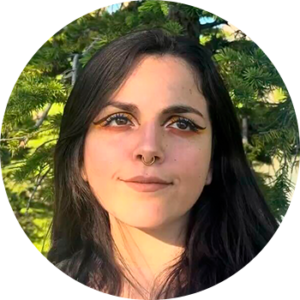
Development and Operations Officer
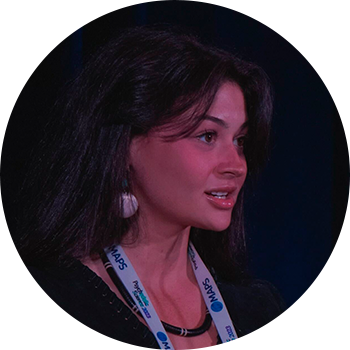
Lorien Chavez is the Development and Operations Officer for the Chacruna Institute for Psychedelic Plant Medicines, and holds a B.A. in Psychology, with a focus on Neurology and Biosciences. She is passionate about the use of sacred plant medicines as a tool for generational epigenetic healing, and has worked as a JEDI advocate for over 10 years looking deeper into how psychedelics may aid in the process of remapping our minds and nervous systems. Lorien is a Certified BDO Nonprofit Accounting Professional (CNAP), and holds a Certificate in Psychedelic-Assisted Therapies from Naropa University, as well as a Certificate in Psychedelic Therapies and Integration from Vital. Based in New Mexico, she also founded the Itegr8al Project, and works as the COO of CommuniTeas.
Special Projects Officer
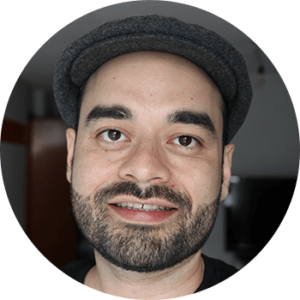
Communication and Media Support
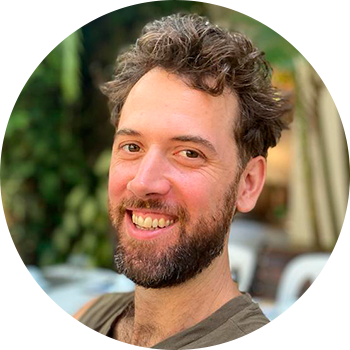
Nicholas Spiers is a queer anthropologist and documentary filmmaker. Currently he is a Ph.D candidate in anthropology at the University of Lisbon studying Mazatec shamanism. He has a Master’s degree in visual anthropology from the University of Barcelona and is interested in the sensory experience of audiovisual mediums. He has lived for several years in Mexico doing fieldwork in the Sierra Mazateca, and is currently based in Portugal. He is Chacruna’s Communication and Media Support, creating content incorporating different cultural perspectives and disciplines to approach challenging discussions in the psychedelic community. He is the lead author on Chacruna’s Indigenous Psilocybin Mushroom Practices: An Annotated Bibliography (Journal of Psychedelic Studies, in 2024). He also produces compelling videos and multimedia materials. With Bia Labate he co-directed the documentary web series The Peyote Files, and created the educational video Chacruna Debunks 6 Racist Myths from the Psychedelic Community. He has created an award-winning series about the psychoactive plant Salvia divinorum. He co-founded Agua de Rayo, a non-profit civil organization based in Mexico’s Sierra Mazateca, which is invested in visual ethnography and community projects and which also has an interest in Mazatec psychoactive plant use.
Research Coordinator
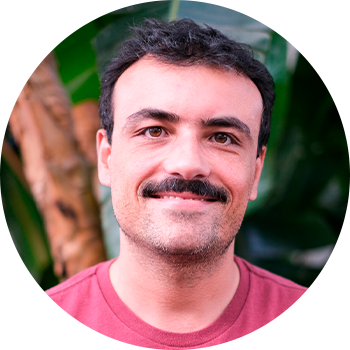
Dr. Henrique Fernandes Antunes holds a Ph.D. in anthropology from the University of São Paulo (2019) and has conducted research as a visiting scholar at UC Berkeley. He earned an M.A. from the same institution in 2012 and a B.A./B.Ed. in social sciences from São Paulo State University (UNESP-FFC) in 2008. His postdoctoral work includes positions at the Centre d’Étude des Mouvements Sociaux (CEMS) at EHESS, the University of Ottawa’s Department of Classics and Religious Studies, and the International Postdoctoral Program at the Brazilian Center of Analysis and Planning (CEBRAP). Dr. Antunes is a member of CEBRAP’s Religion in the Contemporary World research group and is Research Coordinator at the Chacruna Institute for Psychedelic Plant Medicines. He is also a researcher at the Interdisciplinary Group for Psychoactive Studies (NEIP) and a Flourish Fellow at UC Berkeley’s Center for the Science of Psychedelics. His research delves into the regulation of ayahuasca both in Brazil and globally.
Education Program Associate
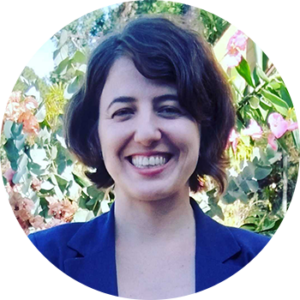 Lígia Duque Platero is Chacruna’s Education Program Associate. She is a queer, cisgender Brazilian woman. She has an interdisciplinary background in history, anthropology and Latin American studies. She holds a bachelor’s degree in history (2005) and a history teacher training qualification (2006) from the University of São Paulo (USP), in Brazil. She has a master’s degree in Latin American Studies from the National Autonomous University of Mexico (UNAM – 2012) in Mexico City, addressing public policies in relation to Indigenous peoples and Indigenous education in Brazil and Mexico from the 1940s-1970s. She has a doctorate in humanities, with an emphasis on cultural anthropology (2018), from the Federal University of Rio de Janeiro (UFRJ), in Brazil. Her PhD looked at the cultural transformations and exchanges amid the alliance between the Yawanawá Indigenous people and an urban church of Santo Daime. Her main research focus areas are: ayahuasca, Santo Daime, sacred plants, shamanic tourism, Yawanawá (Pano) people, Indigenous policies and human rights in Brazil and Mexico. She is a research associate at the Interdisciplinary Group for Psychoactive Studies (NEIP) and at the Laboratory for the History of Religious Experiences (UFRJ/IFCS) in Brazil.
Lígia Duque Platero is Chacruna’s Education Program Associate. She is a queer, cisgender Brazilian woman. She has an interdisciplinary background in history, anthropology and Latin American studies. She holds a bachelor’s degree in history (2005) and a history teacher training qualification (2006) from the University of São Paulo (USP), in Brazil. She has a master’s degree in Latin American Studies from the National Autonomous University of Mexico (UNAM – 2012) in Mexico City, addressing public policies in relation to Indigenous peoples and Indigenous education in Brazil and Mexico from the 1940s-1970s. She has a doctorate in humanities, with an emphasis on cultural anthropology (2018), from the Federal University of Rio de Janeiro (UFRJ), in Brazil. Her PhD looked at the cultural transformations and exchanges amid the alliance between the Yawanawá Indigenous people and an urban church of Santo Daime. Her main research focus areas are: ayahuasca, Santo Daime, sacred plants, shamanic tourism, Yawanawá (Pano) people, Indigenous policies and human rights in Brazil and Mexico. She is a research associate at the Interdisciplinary Group for Psychoactive Studies (NEIP) and at the Laboratory for the History of Religious Experiences (UFRJ/IFCS) in Brazil.
Education Program Assistant
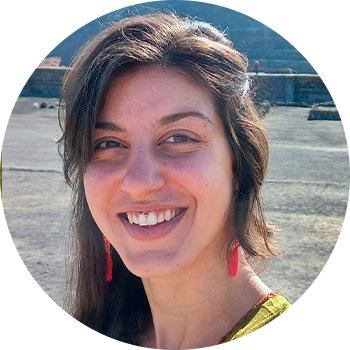
Paula Bizzi Junqueira is a Brazilian anthropologist with a master’s degree from the Center for Research and Higher Studies in Social Anthropology (CIESAS Southeast, Mexico) with a focus on medical anthropology, along with a BA from the University of Brasília (UnB, Brazil). She has carried out research on healing practices with yagé (ayahuasca) in Colombia and the contemporary landscape of peyote in Mexico. She has coordinated the editorial committee of Áltera, a scientific journal produced by the postgraduate program in anthropology of the Federal University of Paraíba (Brazil). Her research addresses the intersections between health and spiritual practices, encompassing themes such as shamanism, relational ontologies, spiritual disciplines and mental health. Paula is Chacruna’s Education Program Assistant and is currently living in Bogotá.
Media Content Producer
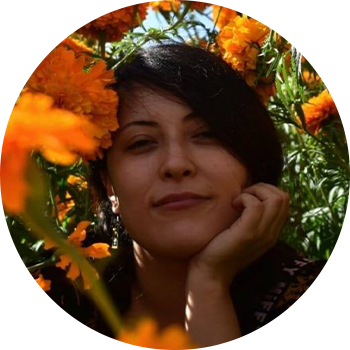
Karina Alvarez is a Mexican graphic designer, illustrator, photographer, and cacao/chocolate aficionado. Having a deep interest on topics about de-stigmatization of drugs and their consumers, she has done graphic design work and volunteered for organizations such as Espolea, ReverdeSer, and the Program of Substance Analysis. She has also collaborated with video production and editing for Drug Reporter. She worked for 5 years in the area of communication for the Mexican Commission of Defense and Promotion of Human Rights, an organization that deals with subjects such as enforced disappearance, migration, femicide, and land and territory defense. Karina is Chacruna’s Media Content Producer.
Chronicles Managing Editor
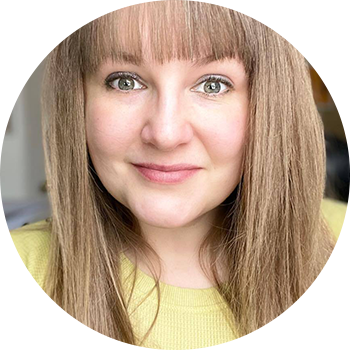
Jessica DeWitt is an environmental historian, editor, writer, and digital communications strategist. She earned her PhD in History from the University of Saskatchewan in 2019. Jessica is Chacruna Chronicles’ Managing Editor, where she focuses on editing and optimizing Chacruna’s articles for readability and digital reach. She is Editor-in-Chief and Social Media Editor for the Network in Canadian History and Environment (NiCHE). A passionate social justice advocate, she focuses on developing digital techniques and communications that bridge the divide between academia and the general public in order to democratize knowledge access. You can find out more about her and her freelance services at jessicamdewitt.com.
Chronicles Editorial Team
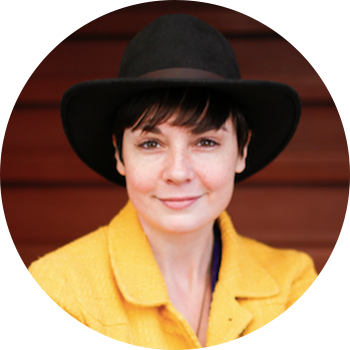
Ali McGhee, PhD, is a writer, storyteller, researcher, and teacher. She completed her PhD in English Literature from the University of Rochester in 2015. She is the co-founder of Appalachian Psychedelic Society, the People Operations Manager for 6AM City, and Co-Director of the Enneagram School of Awakening, as well as an International Enneagram Association (IEA) Accredited Professional. Her work has been published in Lucid News, the MAPS Bulletin, Dark Mountain, Slippery Elm Literary Journal, Holler, Scallywag, WNC Magazine, and others. She is a member of Asheville-based storytelling venue Story Parlor’s “Story Board.” She is part of the Chacruna Chronicles editorial team. For more information, see: alimcgheewrites.com.
Communications Associate of Chacruna Latinoamérica in Mexico
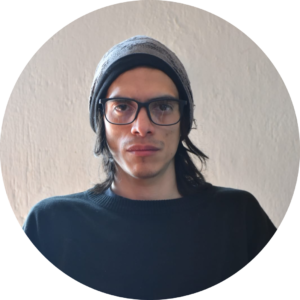 Ibrahim Gabriell is a communicologist and multidisciplinary researcher of the phenomenon of expanded states of consciousness. As a professor in the state of Chiapas (Mexico), he has taught both Communication studies at the Universidad de los Altos de Chiapas and Transpersonal Psychology at the Universidad Jose Vasconcelos. He is Communications Associate of Chacruna Latinoamérica in Mexico. He is also co-founder of Vía Synapsis, an academic society that organizes the National Congress on Psychoactive Substances at the National University of Mexico. He also served as an assistant editor for the publishing house Lunaria. Ibrahim is co-host of Mindsurf’s podcasts: MindSurf – Transformations of Consciousness and Psyche & Cosmos.
Ibrahim Gabriell is a communicologist and multidisciplinary researcher of the phenomenon of expanded states of consciousness. As a professor in the state of Chiapas (Mexico), he has taught both Communication studies at the Universidad de los Altos de Chiapas and Transpersonal Psychology at the Universidad Jose Vasconcelos. He is Communications Associate of Chacruna Latinoamérica in Mexico. He is also co-founder of Vía Synapsis, an academic society that organizes the National Congress on Psychoactive Substances at the National University of Mexico. He also served as an assistant editor for the publishing house Lunaria. Ibrahim is co-host of Mindsurf’s podcasts: MindSurf – Transformations of Consciousness and Psyche & Cosmos.
People Operations Advisor
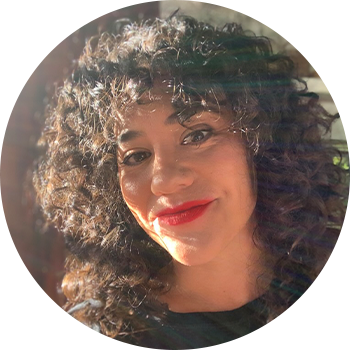
Julie Santos has 15 years of experience supporting organizations across the globe, fueled by her belief in the power of human connection. Stemmed from her work in disaster relief, managing global crisis, Julie connected local leaders to drive change while collaborating with major aid organizations and famous figures like Sean Penn. Within the field of Philanthropy, Julie developed frameworks for democratizing grant-making that was implemented in hundreds of grant making processes worldwide. In 2020, MAPS brought Julie on to build their HR and People Operations Department during a period of rapid growth and a global pandemic. Her work at MAPS inspired her to start Chicha Collective, a company that creates diverse and inclusive workspaces within the field of psychedelics and other emerging industries. Julie is a People Operations Advisor for the Chacruna Institute for Psychedelic Plant Medicines. She sees psychedelics as a tool that unites diverse human experiences to foster genuine human connections, which she believes, is the core for solving our biggest challenges.
Expanded Learning Program Assistant

Lia Bennet has a passion for healthcare and environmental sustainability. She holds a Master’s degree in Public Health specializing in Integrative Medicine, coupled with a Bachelor’s in Environmental Science and a minor in Geology. She is also a certified kundalini yoga instructor. Her career journey began as a healthcare quality improvement grant coordinator at the American College of Physicians in Philadelphia. Lia’s results-oriented approach soon propelled her into influential roles, including Maintenance of Certification Director for the American Board of Addiction Medicine and Deputy Director of The Addiction Medicine Foundation. Her work played a key role in the formal acceptance of addiction medicine as a multi-specialty subspecialty in the United States. She then assumed the role of Curriculum Director and Outreach Academic Specialist with Michigan State University-College of Human Medicine. During her tenure in these roles, she crafted and accredited hundreds of learning modules, secured essential grant funding, and provided unwavering support for lifelong learning and career development. Her vision extends beyond the realm of healthcare, as her deep respect for the environment, plant medicines, and their cultural significance fuels her commitment to fostering a positive impact on both healthcare and environmental sustainability. She is currently Expanded Learning Program Assistant at the Chacruna Institute for Psychedelic Plant Medicines.
Digital, Design and Media Advisor

Milica Radovic Mandic has explored the healing power of psychedelics for the last 10 years, firmly believing in their capacity for fostering consciousness evolution, personal growth and healing. Having completed an MSc in Psychology (UK) with a focus on psilocybin, integrating her experience with theoretical knowledge. She has founded the Psilocybin San Francisco organization, which serves as an educational platform concerning psilocybin use and harm reduction. She also founded Bizdelics, an organization that provides resources for the psychedelics ecosystem. An experienced project consultant and event manager with over 10 years of experience, Milica boasts a track record that includes a successful company exit. She has also held the role of a TED licensee, organizing TEDx events for six years. During her travels to more than 70 countries, Milica has been an active volunteer, offering assistance to those in need. Proficient in five languages, she is deeply passionate about the potential of community. She currently resides n San Francisco and is Chacruna’s Digital, Design and Media Advisor.
Marketing Advisor
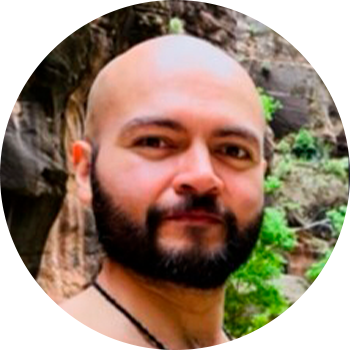
Seph Mortensen is Chacruna’s Marketing Advisor. He has a BBA in Marketing from Georgia State University. He leads the marketing efforts at La Medicina, an ayahuasca retreat center in Tarapoto, Peru. He is an entrepreneur dedicated to supporting organizations that align with his values. Seph is also a graduate student at Naropa University, studying Mindfulness-Based Transpersonal Counseling to become a licensed professional counselor, and plans to work in psychedelic-assisted therapy. He emphasizes the importance of advocating for Indigenous traditional and ceremonial use of psychoactive plants as the modern psychedelic therapy movement grows. After a few years of working with ayahuasca in a Shipibo setting, Seph completed his first plant diet in 2023, experiencing a profound transformation. A Buddhist, he practices Vipassanã meditation in the Spirit Rock lineage. Seph is also a poet, artist, musician, and Taijiquan player residing in Salt Lake City with his dog, Bella Blue Eyes, and his cat, Luna Neo.
Racial Equity and Access Advisor
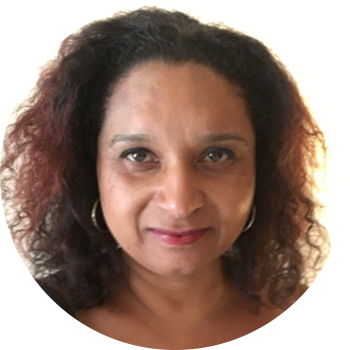
Monnica T. Williams is a clinical psychologist and Associate Professor at the University of Ottawa, in the School of Psychology, where she is the Canada Research Chair in Mental Health Disparities. She is also Clinical Director of the Behavioral Wellness Clinic. Her research focuses on African American mental health, culture, and psychopathology, and she has published over 100 scientific articles on these topics. Current projects include the assessment of race-based trauma, unacceptable thoughts in OCD, improving cultural competence in the delivery of mental health care services, and interventions to reduce racism. She gives diversity trainings nationally for clinical psychology programs, scientific conferences, and community organizations. She currently is Chair of their Academic Training & Education Standards (ATES). She is also a member of the Scientific Advisory Board of the International OCD Foundation, and co-founded their Diversity Council. Dr. Williams Chacruna’s Racial Equity and Access Advisor.
Law and Drug Policy Reform Advisor
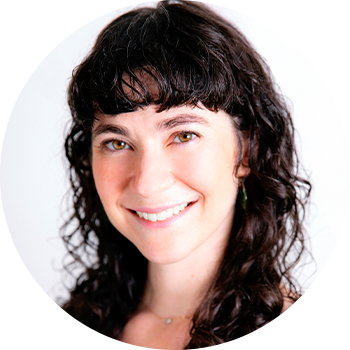
Allison Hoots is an attorney with Hoots Law Practice PLLC. She has had a diverse experience practicing law, including in the legal areas of employment, corporate, employee benefits, tax, and intellectual property and advising churches’ on operation and limiting liability in their religious use of sacraments. She is Chacruna’s Law and Drug Policy Reform Advisor and the lead author of Chacruna’s Guide to RFRA and Best Practices for Psychedelic Plant Medicine Churches. Allison is also Executive Director of Sacred Plant Alliance, Inc., a self-regulating organization and professional society of spiritual practitioners with religious communities dedicated to the advancement of the ceremonial use of psychedelic sacraments within the United States. Additionally, she is Head Legal Counsel for New Yorkers for Mental Health Alternatives. Since 2017, Allison has been a founding member of the Board of Trustees and officer for a nonprofit church that uses plant medicine in prayer. Allison lives in the Hudson Valley of New York with her beloved musician husband, Sean, and two children, Vera and Archer.
Women, Gender Diversity, and Sexual Minorities Advisor
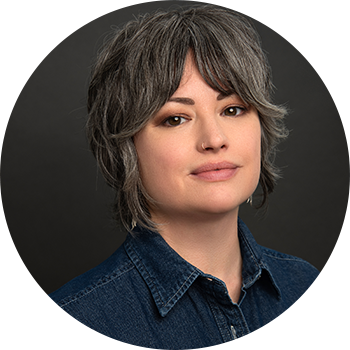
Dee Dee Goldpaugh, LCSW (they/them/theirs) is a psychotherapist, clinical supervisor, educator, and author. Dee Dee is the Clinical Director of Chrysalis Integrative Psychotherapy, a group therapy practice that focuses on delivering trauma-informed care to marginalized client populations, and is part of the Ketamine-Assisted Psychotherapy team at the Woodstock Therapy Center. Dee Dee has taught and presented widely on the topic of psychedelics and sexuality, trauma, gender, and spirituality having authored the first paper to appear in an academic journal describing Psychedelic Integration Psychotherapy techniques that incorporate spirituality for sexual trauma survivors, and is a frequent presenter at professional conferences and trainings. Dee Dee has also served as a Clinical Supervisor for the EMBARK approach to Psychedelic-Assisted Psychotherapy in addition to having facilitated numerous Ketamine-Assisted Transformational retreats. They have over sixteen years of professional clinical experience and training in diverse modalities including EMDR, Internal Family System, Sex Therapy, psychodynamic, and transpersonal therapy models. Dee Dee has a passion for working with LGBTQIA+ populations and advocating for psychedelic health equity for marginalized clients. They are the author of the forthcoming book, Embrace Pleasure, How Psychedelics Can Heal Our Sexuality, being published in 2025 by Inner Traditions.
Women, Gender Diversity, and Sexual Minorities Advisor
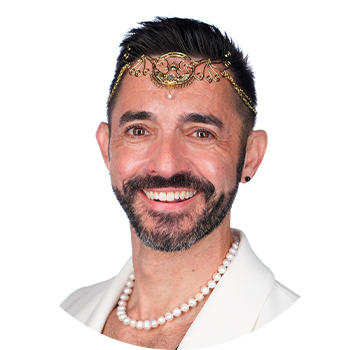
Justin Natoli, JD, LMFT (he/she/they) is a psychotherapist, hakomi practitioner, ketamine therapist, and retreat facilitator. In their private practice in Los Angeles, Justin specializes in depth and somatic psychotherapies, trauma, addiction, psychedelic integration, and working within kink, poly, and LGBTQIA+ communities. Justin is Chacruna’s Women, Gender Diversity, and Sexual Minorities Advisor and are honored to be a contributing author for Chacruna’s latest book, “Queering Psychedelics.” Justin received a JD with honors from the UCLA School of Law and a Master’s in Depth psychology from the Pacifica Graduate Institute. They have a certificate in psychedelic therapy and research from the California Institute of Integral Studies (CIIS) and are working towards a Ph.D. in Psychedelic Studies from the Awe Foundation and Ubiquity University. For more information, see: http://www.justinnatoli.com
Council for the Protection of Sacred Plants Advisor

Martha J. Hartney is a private practice attorney in Colorado. She has a J.D. from the University of Denver College of Law. Her firm, Hartney Law, is a Boulder favorite, receiving the “Best of the West/Law Firm” award six years in a row. She was named a SuperLawyers Rising Star in 2020 and has published and presented on the art and science of death and dying for more than a decade. Martha is the first attorney to be graduate from the CIIS Certificate in Psychedelic Therapies and Research program. She found plant medicines later in life—becoming a drug policy reform advocate after experiencing profound spiritual healing through our plant teachers. She champions the religious use of ayahuasca, and served on the legal team that settled the Church of the Eagle and the Condor case, permitting the first church in the U.S. to import and serve ayahuasca since the UDV in 2006 and the Santo Daime in 2009. She advocates for excellent standards of care, best practices, integration work, and weaving of modern trauma science with powerful multicultural practices taking root in the western world. She is Chacruna’s Council for the Protection of Sacred Plants Advisor, was the first steward of the Religious Use Subcommittee of the Psychedelic Bar Association, and now serves on its Board of Directors. Martha lives with her partner and has two grown sons.
Research Associate

Anna (Anya) Ermakova has a motley background and broad research interests combining nature conservation, ethnobotany, neuroscience and psychiatry, interweaving and connecting these diverse paths through psychedelic science. Anya worked at the forefront of psychedelic research as a science officer at the Beckley Foundation, and has provided psychedelic welfare and harm reduction services with PsycareUK and Zendo. Deep love for nature and wildlife has motivated Anya to study biology at the University of Edinburgh, while a quest to understand altered states of consciousness has prompted her to specialise in neuroscience and later continued during her PhD in psychiatry at Cambridge, where she investigated the origins of psychosis. She then worked for the NHS, developing and trialing a new psychosocial intervention for psychosis. After a brief stint as a clinical trial manager, she had decided to pursue her passion for nature, by studying Conservation Science at Imperial College London, where she researched peyote ecology in Texas, USA. Anya is working as a research consultant in London. She is Research Associate at the Chacruna Institute for Psychedelic Plant Medicines. She is also board member of the Cactus Conservation Institute.
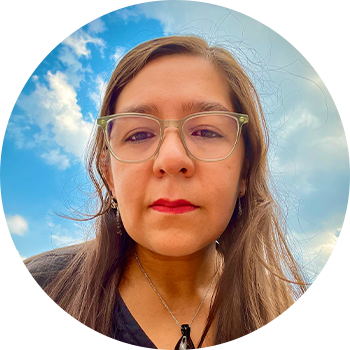
Nidia A. Olvera Hernández is a historian and anthropologist. She has a Ph.D. in modern and contemporary history at the Mora Institute in Mexico City. Nidia earned a B.A. in ethnohistory from the National School of Anthropology and History (ENAH) and a M.A. in social anthropology from the Center for Research and Higher Studies in Social Anthropology (CIESAS), in Mexico City. Her main areas of interest are the old and modern history of psychoactive substances and drug policy. She is co-editor with Bia Labate of the book Plantas Sagradas en México: tradición, religión y ritualidad [Sacred Plants in Mexico: Tradition, Religion and Ritual, COLSAN/Chacruna Institute 2023], and author of several peer-reviewed articles. She has worked as the Project Coordinator at the United Nations on a drug treatment program, has experience working at social research consultancies and has been a professor at the Autonomous University of Mexico City and ENAH. She collaborated as the Research Associate at Chacruna Latinoamérica in México. Currently, she is a Postdoctoral Researcher for the project, “Poison, Medicine or Magic Potion. Shifting Perspectives on Drugs in Latin America (1820-2020)” at Radboud University, Netherlands.
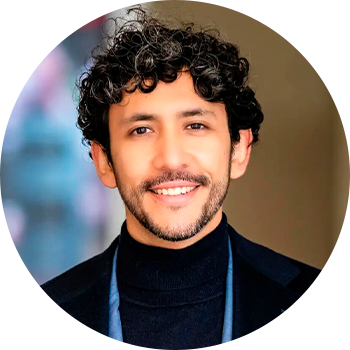
Sergio Pérez Rosal, MD, is a physician, researcher, and educator driving innovations in mental health care by merging mainstream medical practices with novel therapeutic approaches. Drawing from his background in anesthesia, emergency medicine, and a Master’s degree in Neuroscience and Psychology, he co-founded Germany’s first clinic specialized in psychedelic-assisted therapy. With clinical expertise, he develops educational programs that empower professionals to integrate therapies while honoring diverse worldviews. His research focuses on psychedelics, cultural competency, and neuroscience illuminating how psychedelics can foster healing and growth. As a faculty member in the University of Ottawa’s Master’s program in Psychedelics & Consciousness, he shares evidence-based knowledge, shaping the next generation of professionals in this evolving field. He is also Research Associate at the Chacruna Institute for Psychedelic Plant Medicines. Through public speaking, he makes complex research accessible helping individuals, and institutions grasp the latest scientific advances, transform health paradigms, and foster positive societal change. He strives to bridge research with practice, ensuring a thriving healthcare and educational environment.
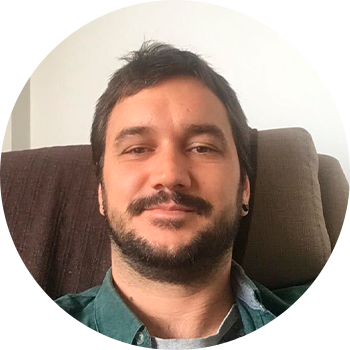
Bruno Ramos Gomes is a Brazilian psychologist, with Master’s degree in Public Health at the School of Public Health-USP, and a PhD in Public Health at University of Campinas, Brazil. In his masters, he researched the use of ayahuasca in the recovery of homeless people and drug users. In his PhD, he did a 12 month qualitative follow-up of patients treating drug dependence and depression. He has been helping patients integrate ibogaine and ayahuasca in their therapeutic processes for the last 15 years. He is a Research Associate at the Chacruna Institute for Psychedelic Plant Medicines.
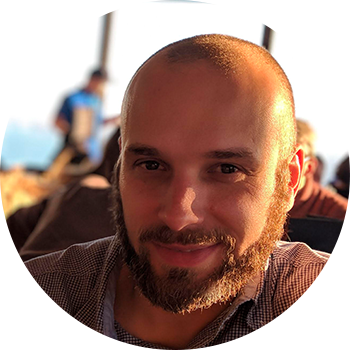
Geoff Bathje, PhD (he/him/his) is a licensed psychologist, researcher, advocate, and co-founder of the psychedelic-focused 501c3 Sana Healing Collective. His clinical work focuses primarily on substance use and addiction, multicultural issues, trauma, mood disorders, and the use of mindfulness meditation and mind-body connection in therapy. He has published research on stigma, cultural competence, harm reduction, and the medicinal use of psychedelics. He takes an intersectional view of social issues and has engaged in community organizing, activism, and policy reform on issues related to economic justice, racial justice, mental health justice, harm reduction, and ending the war on drugs. He is a member of Chacruna’s Council for the Protection of Sacred Plants.
Graphic Designers
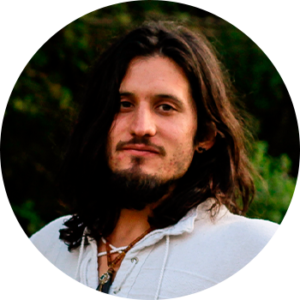
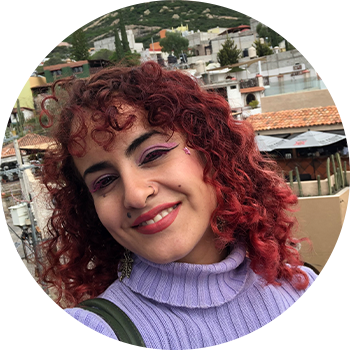
Fernanda Cervantes is a psychedelic activist, graphic designer, illustrator, and visual artist from Mexico City. She has an interest in sacred plants, altered states of consciousness, biology, psychonautics, healing, physics and psychology. She has collaborated with psychonauts and cannabis projects like Mindsurf, Thulio, Via Synapsis and she also works as a freelancer. She is a graphic designer for The Chacruna Institute for Psychedelic Plant Medicines.
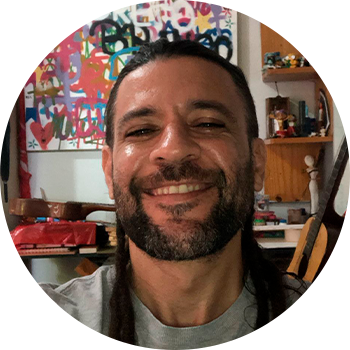
Mulinga (Pedro Barreto) is a Brazilian graffiti artist with an academic background in the Visual Arts. He holds a BA in Visual Arts from the Paraiba Federal University (UFPB) in Brazil, and a specialized degree in Graphic Design and Communication, Marketing and Culture by Estacio University. During the pandemic he worked on the communication area of the Northeast Scientific Advisory Committee to combat the coronavirus. He also works as a freelancer graphic designer for several Cannabis associations and medical doctors who prescribe medical cannabis in Brazil. Using spray, paint, and digital mediums, Mulinga has been creating impressive work, being recognized for his technique and style. His work has gone beyond the streets and galleries, impacting culture and society. Mulinga is graphic designer for the Chacruna Institute for Psychedelic Plant Medicines.
Advisory Board
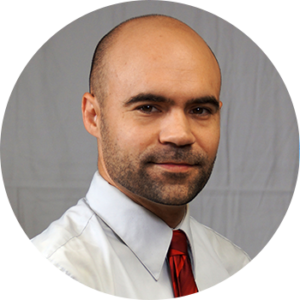
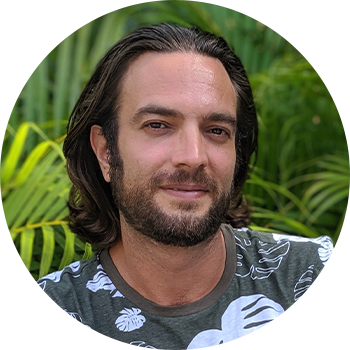
Adam Aronovich is a doctoral candidate in Anthropology and Communications at Universitat Rovira i Virgili in Catalonia, focusing on Medical Anthropology and Cultural Psychiatry. He is an active member of the Medical Anthropology Research Center (MARC) and has spent close to 5 years living and working in the Peruvian Amazon, conducting extensive fieldwork and qualitative research in collaboration with ICEERS, the Beckley Foundation, and, more recently, the Centre for Psychedelic Research at Imperial College. Beyond research, Adam has facilitated healing retreats and workshops in the Peruvian Amazon and, currently in Mexico. He is also a process facilitator and provides preparation and integration support in private practice and the co-founder and COO of Hidden Hand Media, a creative agency in the space of transformation and technology. Additionally, Adam sits on Chacruna’s Advisory Board.
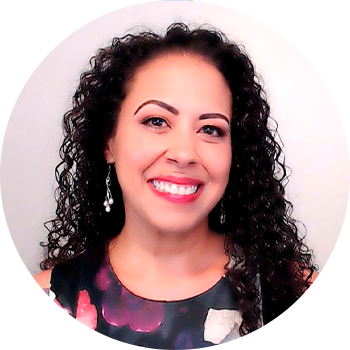
NiCole T. Buchanan, PhD, is a professor, psychologist and Interim Board Chair and CEO of the Board of Psychedelic Medicine and Therapies, serves on the Advisory Board of the Chacruna Institute for Psychedelic Plant Medicine and previously served as Co-Chair of the Inaugural Board of Directors for the American Psychedelic Practitioners Association. Dr. Buchanan trained with MAPS, Polaris Insight Center and the California Institute of Integral Studies. She is a Fellow of the Association for Psychological Science, four divisions of the American Psychological Association and has received international awards for her contributions to the field. An accomplished writer and scholar, she has 120+ publications focusing on equity and inclusion (in psychedelics, training, and organizations), harassment, organizational climate and professional development. Her work is highlighted in hundreds of media outlets and she is a featured international speaker, including TEDx and National Public Radio.
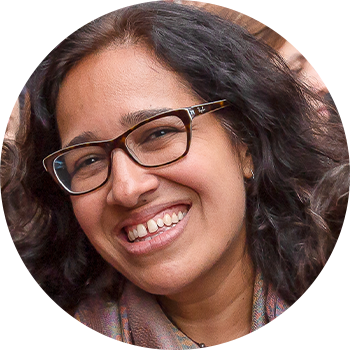
Artionka Capiberibe obtained her doctorate in social anthropology from the Museu Nacional-UFRJ in 2009. From 2006–2007, she was a visiting researcher at the Centre d’Enseignement et Recherche en Ethnologie Amérindienne (Paris X-Nanterre). Since 1996, she has been working with the Palikur people, an Amerindian people living in the Amazon region on the border of Brazil and French Guiana. The main themes of her research are corporalities, cosmologies, social changes, and religious conversions. This last theme is the focus of her book, Baptism of Fire: The Palikur and Christianity (2007). Capiberibe has also conducted research and published articles on Amazonian development issues. She is a professor in the Department of Anthropology at Unicamp (State University of Campinas), São Paulo, Brazil. In 2022, she was a visiting scholar at UC Berkeley and a visiting professor at at the University of Paris Nanterre. She sits on Chacruna’s Advisory Board.

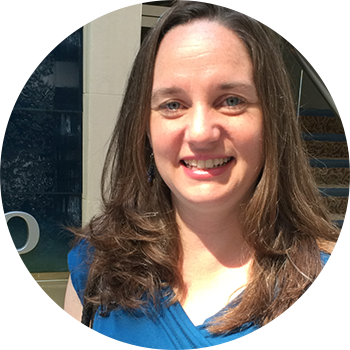
Erika Dyck is a Professor and a Canada Research Chair in the History of Health & Social Justice at the University of Saskatchewan. She is the author or co-author of several books, including: Psychedelic Psychiatry (2008); A Culture’s Catalyst: Historical Encounters with Peyote and the Native American Church in Canada (2016); Psychedelic Prophets: The Letters of Aldous Huxley and Humphry Osmond (2018); Mujeres y Psicodélicos (2022) and co-author of The Acid Room: the psychedelic trials and tribulations of Hollywood Hospital (2022).

Jamilah R. George, M.Div., a Detroit native, singer, dancer, and actress, obtained her Bachelor’s from the University of Michigan, her Master’s from Yale University, and is now pursuing a Ph.D. in Clinical Psychology at the University of Connecticut. Jamilah serves as a MAPS-sponsored phase 3 MDMA-assisted psychotherapy co-therapist whose site focuses on treatment-resistant posttraumatic stress among people of color. She also sits on the Advisory Board of the Chacruna Institute for Psychedelic Plant Medicines. Her research interests include obsessive-compulsive and related disorders, the psychological effects of discrimination and racial trauma on people of color, and the neurological underpinnings of these disorders. Jamilah’s passion for social justice and equality issues fuels her work as she advocates for the mental and holistic wellbeing of socially disenfranchised groups, including women, people of color, impoverished domestic and international communities, and the intersections therein.
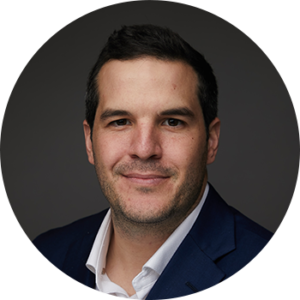 Jesse Gould, Founder of Heroic Hearts Project, was born in Santa Fe, New Mexico and grew up in New Smyrna Beach, FL. In 2009 he graduated from Cornell University with a degree in Economics. After working in investment banking for a short time he enlisted in the Army and became an Airborne Ranger for four years and three combat deployments. After struggling with severe anxiety for many years, he finally decided to go to an ayahuasca retreat which has had a profoundly positive effect on his anxiety and daily life. During the week-long retreat, he instantly saw the healing potential of the drink and knew that it could be a powerful tool in healing the mental struggles of his fellow veterans. This experience inspired him to found Heroic Hearts Project, an organization that connects veterans in need of healing with ayahuasca therapy. Since its founding, Heroic Hearts Project has quickly become one of the most prominent veteran voices pushing for psychedelic based therapies. He sits on the Advisory Board of the Chacruna Institute for Psychedelic Plant Medicines.
Jesse Gould, Founder of Heroic Hearts Project, was born in Santa Fe, New Mexico and grew up in New Smyrna Beach, FL. In 2009 he graduated from Cornell University with a degree in Economics. After working in investment banking for a short time he enlisted in the Army and became an Airborne Ranger for four years and three combat deployments. After struggling with severe anxiety for many years, he finally decided to go to an ayahuasca retreat which has had a profoundly positive effect on his anxiety and daily life. During the week-long retreat, he instantly saw the healing potential of the drink and knew that it could be a powerful tool in healing the mental struggles of his fellow veterans. This experience inspired him to found Heroic Hearts Project, an organization that connects veterans in need of healing with ayahuasca therapy. Since its founding, Heroic Hearts Project has quickly become one of the most prominent veteran voices pushing for psychedelic based therapies. He sits on the Advisory Board of the Chacruna Institute for Psychedelic Plant Medicines.
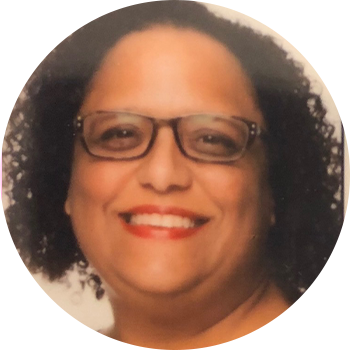
Jennifer C. Jones, PhD, LCSW, is a 54 y.o., multiracial Black, queer, fairly able-bodied, cisgender woman with U.S. citizenship. She co-founded Rising Caps Collective with Aisha Mohammed supporting expansive healing to address traumatic legacies of colonization, slavery and capitalism. Jennifer previously worked with Lykos (formerly, MAPS MPBC) as a JEDI consultant and a MAT educator. Since 1998, Jennifer has practiced trauma psychotherapy with individuals identifying as: lgbqa; transgender or gender non-binary; people of color; sex workers; substance users; experiencing class oppression; and/or HIV positive. Previously, she served as the Chief DEI Officer of Philadelphia FIGHT and as faculty and ED of Gestalt Training Institute of Philadelphia. As a parent who believes a just world is possible, Jennifer is committed to the unity of the global poor and dispossessed, organizing across color lines to fight for everyone’s economic human rights.Jennifer sits on Chacruna’s Advisory Board.
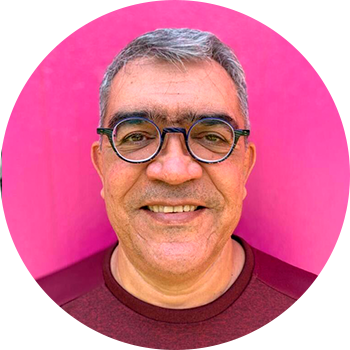
Marcelo Leite, PhD is a science journalist and book author based in São Paulo, Brazil. He is a columnist with Folha de S.Paulo, the daily newspaper that publishes his blog Virada Psicodélica (psychedelic turnabout). Marcelo dedicated most of his career to stories about genetics, ecology, evolution, Brazilian Indigenous peoples, the Amazon Forest and climate change, mainly. After a decade as editor at Folha’s Science desk, he spent a sabbatical year as a Nieman Fellow at Harvard in 1997/98. Upon his returning to Brazil, he did a PhD in Social Sciences at the State University of Campinas (UNICAMP). His thesis about the discourse and hype around the Human Genome Project was published in 2007 under the title “Promessas do Genoma” (genome’s promises). In 2017 he covered MAPS’ conference Psychedelic Science in Oakland, CA and since then plant medicines and mind-altering substances became his main subject as a journalist. In 2021 his book “Psiconautas – Viagens com a Ciência Psicodélica Brasileira” (Psychonauts – Trips with Brazilian Psychedelic Science) was published by Fósforo Editora. Marcelo is now dedicated to research for a book on jurema-preta (Mimosa tenuiflora), a DMT-containing plant endemic in Brazil’s Northeast at the center of a popular religion in the region, Jurema Sagrada. He sits in the Advisory Board of the Chacruna Institute for Psychedelic Plant Medicines, and often publishes articles with them.
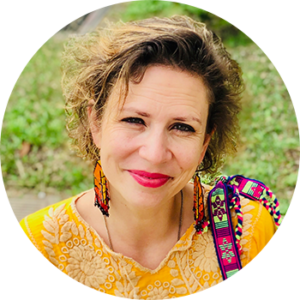 Diana Negrín is a geographer, writer and curator based in the Bay Area and Guadalajara. She is the author of Racial Alterity, Wixarika Youth Activism and the Right to the Mexican City (University of Arizona Press 2019) and Grandes maestros del arte wixárika (Secretaría de Cultura Jalisco; Wixarika Research Center 2019). Currently, Negrín is a professor in Geography at UC Berkeley. She is part of the Board of Directors and she helps run the Wixarika Research Center, a non-profit that supports archival, cultural and ecological projects with Wixarika communities. She sits in the Advisory Board of the Chacruna Institute for Psychedelic Plant Medicines. Since 2018, Negrín has actively participated in discussions surrounding psychedelics, Indigenous territorial rights and cultural extraction.
Diana Negrín is a geographer, writer and curator based in the Bay Area and Guadalajara. She is the author of Racial Alterity, Wixarika Youth Activism and the Right to the Mexican City (University of Arizona Press 2019) and Grandes maestros del arte wixárika (Secretaría de Cultura Jalisco; Wixarika Research Center 2019). Currently, Negrín is a professor in Geography at UC Berkeley. She is part of the Board of Directors and she helps run the Wixarika Research Center, a non-profit that supports archival, cultural and ecological projects with Wixarika communities. She sits in the Advisory Board of the Chacruna Institute for Psychedelic Plant Medicines. Since 2018, Negrín has actively participated in discussions surrounding psychedelics, Indigenous territorial rights and cultural extraction.
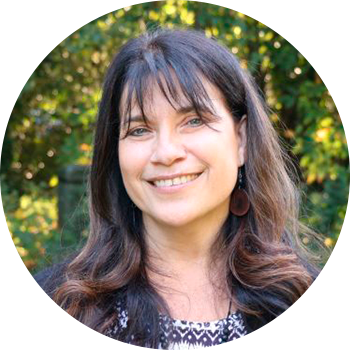
Daniela Peluso is a cultural anthropologist who has worked over the last two decades in Lowland South America, mostly with communities in Peru and Bolivia. She has been actively involved in various local efforts on issues relating to health, gender, indigenous urbanization and land-rights and works in close collaboration with indigenous and local organizations. Her publications focus mostly on indigenous ontologies, urbanization, violence and relatedness. She received her PhD in 2003 from Columbia University and is an Emeritus Fellow in social anthropology at the University of Kent. She sits on the Advisory Board of the Chacruna Institute for Psychedelic Plant Medicines.

Regina Randall is from Holy Cross, Alaska, an Athabaskan village located on the Yukon river, where she is an enrolled Tribal citizen. Gina works as an Indigenous rights advocate and political organizer in Alaska. She is the Founder and Chair of the Alaska Entheogenic Awareness Council and directs Arctic Visions, Alaska’s annual psychedelic conference. In the spring of 2007, Regina traveled to Peru where she was introduced to the world of shamanic healing. Inspired by her experience, she moved to Peru in 2009 where she spent three years training with indigenous curanderos in the Amazon rainforest. Regina has a deep reverence and respect for the Shipibo-Conibo tribe and resonates strongly with their healing practices. She has organized and facilitated many healing retreats in Peru and is passionate about sharing the wonders of entheogenic plant medicine with the world. Gina is currently pursuing an MA in Political Psychology at Arizona State University. She also serves on the Advisory Board of the Chacruna Institute for Psychedelic Plant Medicines.
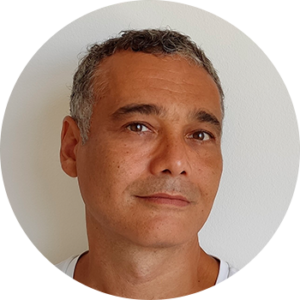 Sidarta Ribeiro is a Full Professor of Neuroscience and co-founder of the Brain Institute at the Universidade Federal do Rio Grande do Norte, Brazil. He holds a Bachelor’s degree in Biology from the Universidade de Brasília (1993), a Master’s degree in Biophysics from the Universidade Federal do Rio de Janeiro (1994), and a Ph.D. in Animal Behavior from the Rockefeller University (2000), with post-doctoral studies in Neurophysiology at Duke University (2005). Has experience in neuroethology, molecular neurobiology, and systems neurophysiology, with an interest in the following subjects: memory, sleep, and dreams; neuronal plasticity; vocal communication; symbolic competence in non-human animals; computational psychiatry; neuroeducation; psychedelics and drug policy. He is also involved in the public debate on medicinal uses and the legalization of cannabis in Brazil. He sits on the Advisory Board of the Chacruna Institute for Psychedelic Plant Medicines.
Sidarta Ribeiro is a Full Professor of Neuroscience and co-founder of the Brain Institute at the Universidade Federal do Rio Grande do Norte, Brazil. He holds a Bachelor’s degree in Biology from the Universidade de Brasília (1993), a Master’s degree in Biophysics from the Universidade Federal do Rio de Janeiro (1994), and a Ph.D. in Animal Behavior from the Rockefeller University (2000), with post-doctoral studies in Neurophysiology at Duke University (2005). Has experience in neuroethology, molecular neurobiology, and systems neurophysiology, with an interest in the following subjects: memory, sleep, and dreams; neuronal plasticity; vocal communication; symbolic competence in non-human animals; computational psychiatry; neuroeducation; psychedelics and drug policy. He is also involved in the public debate on medicinal uses and the legalization of cannabis in Brazil. He sits on the Advisory Board of the Chacruna Institute for Psychedelic Plant Medicines.
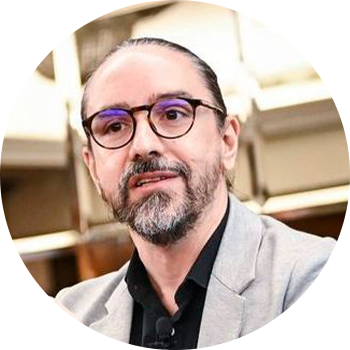
Thiago Rodrigues, PhD, is a political scientist acting as an Associate Professor at the Institute for Strategic Studies (INEST) of the Fluminense Federal University (UFF), in Rio de Janeiro, Brazil, where he teaches for the undergrad course in International Relations and the graduate program on Strategic Studies. Dr. Rodrigues has a PhD in Political Science at the Pontifical Catholic University of Sao Paulo (Brazil) and the Institut des Hautes Études de l’Amérique Latine (Sorbonne Nouvelle, France). He is an expert in Organized Crime studies, Global Drug Policy, Criminal Governance, and illegal armed groups in Latin America. He is also the head of the research group Security and Democracy in the Americas (SeDeAMERICAS) and holds a fellowship from the Brazilian National Council for the Development of Science and Technology (CNPq). Additionally, Dr. Rodrigues is a co-founder of the Interdisciplinary Group for Psychoactive Studies (NEIP) in Brazil and sits on Chacruna Institute Advisory Board. He has been publishing extensively on his issues of expertise in high-rank international journals as well in books and book chapters in English, Portuguese, Spanish, and French.

Britt Rollins is a career brand and communications strategist in the healthcare and pharmaceutical marketing sectors, known for his strategic acumen and innovative approach. As a Co-Founder of the National Psychedelics Association, he brings an extensive background in brand strategy and communication from his time at global agencies like Saatchi & Saatchi, DDB, and Real Chemistry. His expertise extends across key areas including pharmaceutical brand launches, FDA indication expansions, and rebranding initiatives. Britt’s career has spanned across major global cities like New York, London, and San Francisco, where he has left a significant impact. He also sits on the Chacruna Institute’s Advisory Board. In addition to his professional roles, Britt is deeply committed to mental health advocacy. His roles with the Educational Foundation of America, Veterans of War and Chacruna demonstrate his dedication to societal wellbeing. Since 2018, Britt has focused both his professional and philanthropic work to focus on improving mental health through psychedelic healing.

Darron T. Smith is associate professor in the Department of Family Medicine at the University of Washington. He is a physician assistant and US Army veteran with over twenty years of healthcare-related experience as an educator and mental health practitioner. Dr. Smith has trained with MAPS’ MDMA-assisted therapy. His research and scholarship examine US-based systems of racial oppression and systemic inequality in all societal domains, including healthcare, the family (transracial adoption), healthcare disparities, addiction, religion, sport, culture, and politics. Dr. Smith’s current research and practice intertwine the study of applied neuroscience, race-based trauma, and mental illness by looking at the impact of EEG biofeedback versus MDMA-assisted psychotherapy on brainwave activity in individuals with racial trauma (PTSD) using EEG technology. Dr. Smith sits in the Advisory Board of the Chacruna Institute for Psychedelic Plant Medicines.
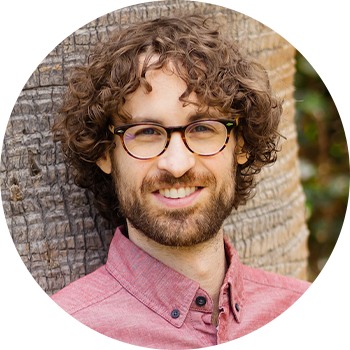
Jordan Sloshower, MD, MSc is a psychiatrist, researcher, and educator whose work focuses on therapeutic applications of psychedelic medicines, and in particular, how these novel treatments can be delivered in a manner that promotes holistic healing and social justice. He is co-founder of West Rock Wellness PLLC, an integrative mental health and wellness center in New Haven, CT. He is also a clinical instructor in the Yale Department of Psychiatry, where he co-founded the Yale Psychedelic Science Group and served as an investigator and therapist in several clinical trials of psilocybin-assisted therapy. Reflecting his commitment to ethical stewardship of psychedelic medicines, Jordan serves as a member of Chacruna Institute’s advisory board and was part of the inaugural Board of Directors of the American Psychedelic Practitioners Association. His interdisciplinary perspective is informed by training in medical anthropology and global health, and deep interests in ceremonial uses of plant medicines, Buddhist philosophy, and integrative approaches to wellness.
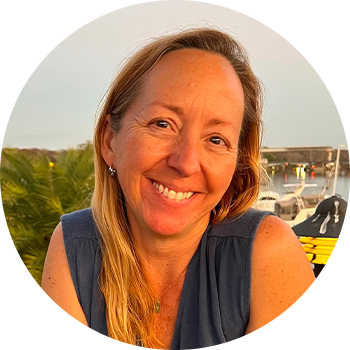
Emily Sterling sits on the Advisory Board of the Chacruna Institute for Psychedelic Plant Medicines. Emily has been helping philanthropists, foundations, and nonprofit CEOs and Boards to navigate new opportunities, complicated challenges, and big decisions for over 30 years. These include launching and managing philanthropic activities; forging a new strategy; defining a shift in business plan or organization structure; mapping a big growth plan or turnaround plan; navigating the transition of a founder or long-term CEO; rethinking and redesigning governance and boards; or launching a new collaboration or merger. She provides coaching services to CEOs and Board members, and can serve as an interim or fractional executive for philanthropists, foundations and nonprofits. Emily works with aligned groups by designing, facilitating and evolving donor circles, funder and nonprofit collaboratives, and collective impact initiatives that provide higher leverage toward outcomes. She also works with foundations and nonprofits with affiliates by developing and providing customized and cohort-based advisory services and capacity building to grantees and member organizations.Today
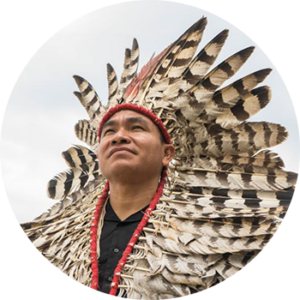 Leopardo Yawa Bane is the son of a traditional chief of the Huni Kuin (an indigenous group also known as the Cashinahua). Leopardo Yawa Bane is an international and national advocate of the preserving the ecological heritage of the native lands of his people. Born in the Cashinahua Reserve of the Jordan River in the State of Acre, Brazil, Bane and his brother Fabiano were sent from the villages to Brazilian cities at a young age by their father and chief, in order to learn new knowledge of the world outside the forest and to represent their people in tradition, heritage, and politics. Since then, Bane has completed his university studies, learning to speak Portuguese fluently, and has begun to represent his people nationally and internationally as an ambassador and healer. Bane and his people see the mystical and natural duality of the plants and how the spiritual world can be accessed through the plants found in their native areas. As is common with indigenous tribes around the world, and particularly in the Amazon, the Huni Kuin have a unique worldview, from creation to the beyond, derived from the wisdom of plants and their shared history. Bane grew up using and being trained in the use of medicinal plants by his grandfather. Twenty years ago, he started using different medicinal plants with non-indigenous people. Bane brings the knowledge of his ancestors, of his people, and of the forest.
Leopardo Yawa Bane is the son of a traditional chief of the Huni Kuin (an indigenous group also known as the Cashinahua). Leopardo Yawa Bane is an international and national advocate of the preserving the ecological heritage of the native lands of his people. Born in the Cashinahua Reserve of the Jordan River in the State of Acre, Brazil, Bane and his brother Fabiano were sent from the villages to Brazilian cities at a young age by their father and chief, in order to learn new knowledge of the world outside the forest and to represent their people in tradition, heritage, and politics. Since then, Bane has completed his university studies, learning to speak Portuguese fluently, and has begun to represent his people nationally and internationally as an ambassador and healer. Bane and his people see the mystical and natural duality of the plants and how the spiritual world can be accessed through the plants found in their native areas. As is common with indigenous tribes around the world, and particularly in the Amazon, the Huni Kuin have a unique worldview, from creation to the beyond, derived from the wisdom of plants and their shared history. Bane grew up using and being trained in the use of medicinal plants by his grandfather. Twenty years ago, he started using different medicinal plants with non-indigenous people. Bane brings the knowledge of his ancestors, of his people, and of the forest.
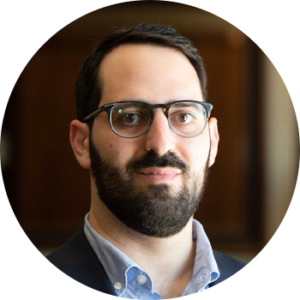
Brett Waters, Esq., is the co-founder and executive director of Reason for Hope and co-founder of the Veteran Mental Health Leadership Coalition. Both organizations focus on policy and advocacy for safe and affordable access to psychedelic therapies to prevent suicide and other deaths of despair. Brett spent five years as an antitrust litigation associate at Winston & Strawn in New York City before leaving the firm in November 2022 to focus on Reason for Hope’s mission full-time. The organization is named in memory of Brett’s mother, Sherrie Hope Waters, who he lost to suicide in 2018. He previously served as the Policy and Advocacy Chair for the American Foundation for Suicide Prevention, NYC Chapter. Brett has a J.D. from New York University School of Law. He currently sits on Chacruna’s Advisory Board.



